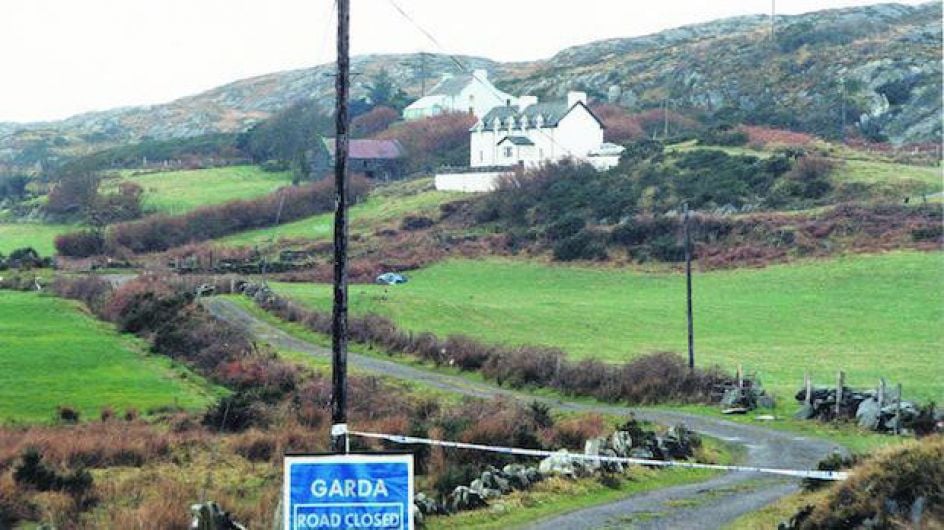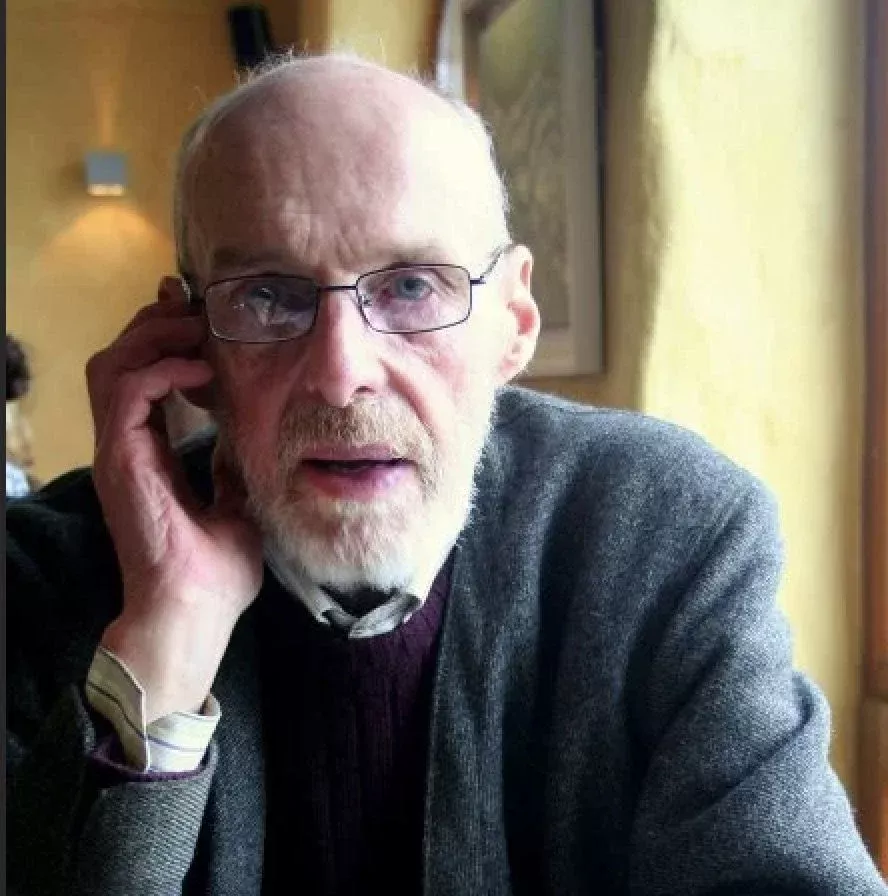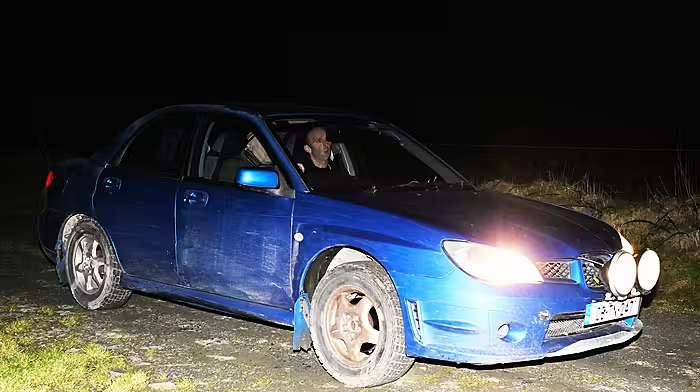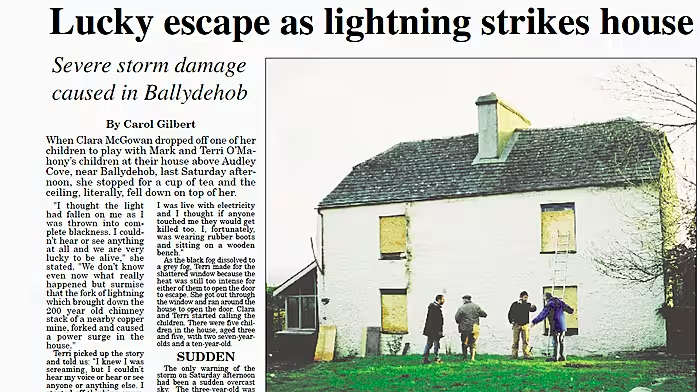FRIENDS of the murdered film producer Sophie Toscan du Plantier have described the Tánaiste’s stringent criticism of the investigation as ‘a virtual apology’ by the State.
Schull resident Bill Hogan, who attended the launch of Senan Molony’s book Sophie: The Final Verdict in Dublin last Thursday, described the impact of Micheál Martin’s words – in a room ‘populated with opinion makers’ – as powerful.
Bill Hogan said there was a stunned silence as people comprehended the reach of the Tánaiste’s comments, and their reaction was borne out by the intense media scrutiny that followed.
The Tánaiste, who had been given an advance copy of the book, said the State’s failure to deliver justice was a source of ‘deep shame for us’.
He described Sophie’s murder as deeply shocking, and said the savage attack that ended her life remains ‘seared into our consciousness’.
Micheál Martin said the terrible anguish of her family, and all who knew her, was made worse by the fact that ‘our legal system proved incapable of meeting its responsibilities to Sophie.
‘The simple fact is we failed in our duty to find and convict a bloody murderer and our system blocked alternative routes when others were not willing to accept our failures,’ he added.
Frank Buttimer, solicitor for the chief suspect Ian Bailey who died suddenly on a street in Bantry in January, challenged the Tánaiste’s remarks, saying they were an attack on many pillars of justice in the State.
The solicitor pointed out that the Tánaiste’s comments were critical of the garda investigation and the Director of Public Prosecutions.
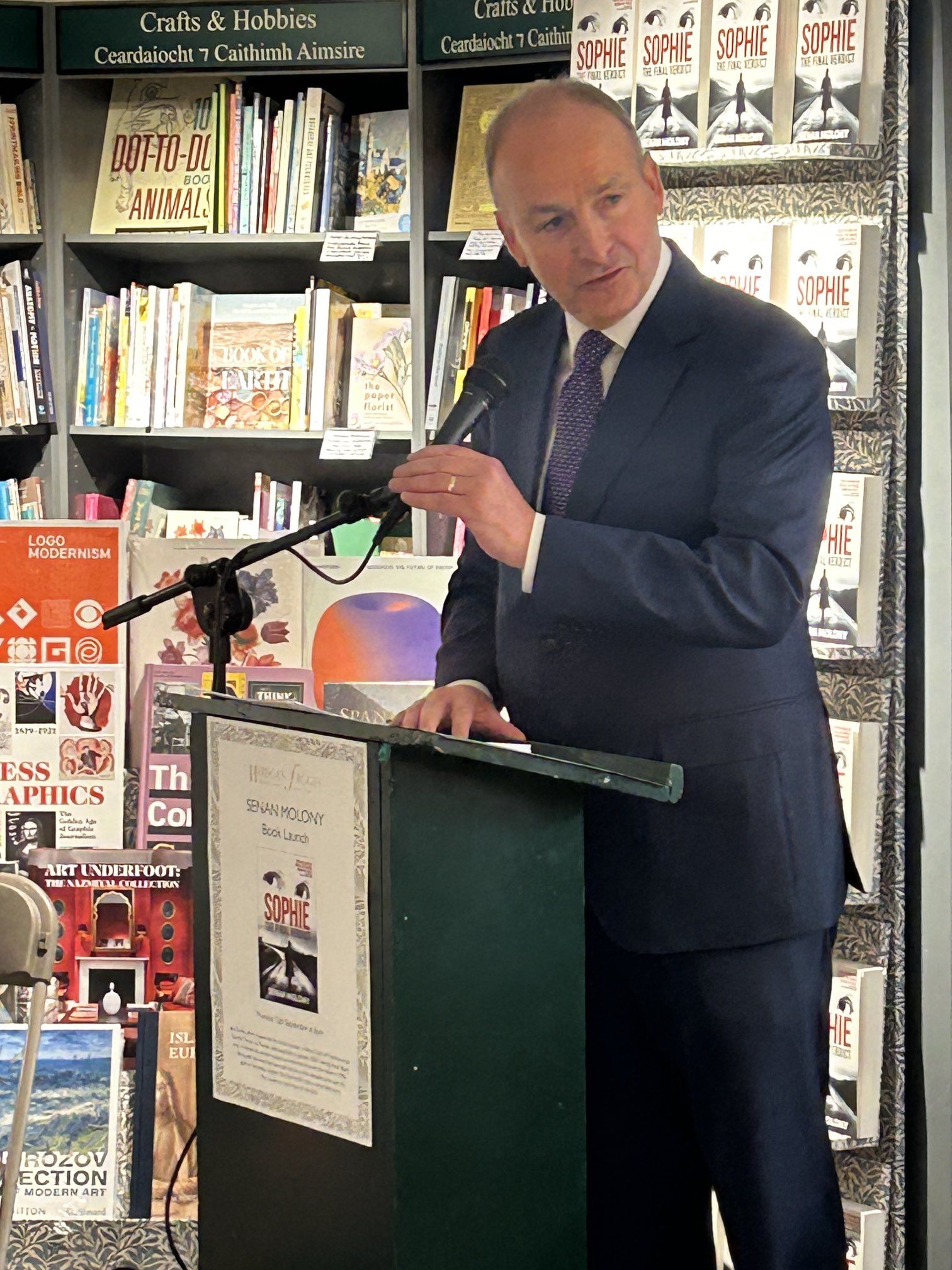 Micheál Martin speaking at the launch of Senan Molony’s book in Dublin
Micheál Martin speaking at the launch of Senan Molony’s book in DublinHe said they also challenged the decision of the High Court which, on two occasions, refused to extradite Ian Bailey – a man who was twice questioned in relation to the murder, but was never charged, and always maintained his innocence.
But the Tánaiste – who described the evidence against Ian Bailey as overwhelming, and described the deceased as a violent man with the psychological profile of an impulsive narcissist and misogynist – doubled down on his remarks in subsequent interviews.
In a statement issued to The Southern Star, the Tánaiste paid tribute to investigative journalist Senan Molony, saying his book is ‘an extremely comprehensive piece of work’.
He noted that the journalist was reporting from the scene of the murder at Toormore, outside Schull, shortly after Sophie’s murder, in the days leading up to Christmas 1996.
Senan’s 28 years of covering the murder is reflected in the book, which includes significant detail of Sophie’s life, and her last days in Schull.
It doesn’t just focus on the brutality of her murder but also on the vitality of the Frenchwoman.
Her uncle Jean-Pierre Gazeau hailed it as ‘the book that puts all the evidence before the people’.
In defending his comments at the launch, the Tánaiste said it is important to reflect on momentous events of this kind.
After reading comprehensively about the murder, Micheál Martin said: ‘I’ve come to the conclusion that we did fail the family of Sophie du Plantier, and we didn’t do right by Sophie du Plantier.
‘There has to be space in our public discourse for that kind of reflection, observation – otherwise, we’re sort of reinforcing maybe, issues that do need to change over time,’ he concluded.
Independent Ireland leader Michael Collins described the Tánaiste’s remarks regarding the Sophie Toscan du Plantier case as ‘too little, too late.’
‘After 28 years, Sophie’s family is still seeking justice for her brutal murder,’ he said. ‘It is well-known that ministers and governments can intervene in various situations when they choose to do so. In Sophie’s case, they did not. These comments by the Tánaiste are, in my opinion, distasteful,’ he added.
Deputy Collins said he had raised the case of the murdered French woman in the Dáil at least four times over the past three years but neither the government nor the Tánaiste, who was Taoiseach at the time, expedited the case.
Bill Hogan told The Southern Star that he was surprised to see a high-ranking government member be so critical of government action in the past.
‘I was taken aback by the Tánaiste’s candour. It was a virtual apology. And it made people realise that those in government are flexible enough to realise that mistakes were made,’ he said.
Bill, one of the founders of the Friends of Sophie Toscan du Plantier in Schull, said Senan Molony’s book offers ‘a gripping narrative’ and also pieces together, in print, the case against Ian Bailey, and points the finger of blame directly at him.
 The family of the late Sophie Toscan du Plantier shared this photograph, that has never before appeared in print, with the author Senan Molony.
The family of the late Sophie Toscan du Plantier shared this photograph, that has never before appeared in print, with the author Senan Molony.Sophie’s uncle, Jean-Pierre Gazeau, who also attended the launch, told The Southern Star: ‘We have been waiting almost 28 years for the truth and full justice here in Ireland, a country that Sophie loved deeply.’
Mr Gazeau thanked Senan Molony for ‘continuing to shine a light on the tragic injustice’ and reiterated his family’s belief that Ian Bailey was guilty of the murder of Sophie.
‘The comments made by the Tánaiste were very important, very strong,’ he said. ‘It was new for us, the fact that one of the highest politicians in Ireland completely acknowledged the flaws in the way the Irish State – the garda and the DPP – managed Sophie’s case.
‘It was the first signal, coming from Ireland, at a very high political level, that the Irish State should do something,’ he added.
Mr Gazeau said the Tánaiste has a track record in promoting accountability through previous inquiries. And he said the family – including Sophie’s son Pierre-Louis Baudey-Vignaud, as well as her father Georges (98) and mother Marguerite (93) – are now calling for an official inquiry.
‘There are too many flaws in the sad and tragic story. To have a meaningful investigation into all the circumstances of her death and the subsequent investigative and legal processes is essential to allay continuing public concern and to deliver closure for the family,’ he concluded.
However, Taoiseach Simon Harris said the ongoing cold case review should be completed first.
As someone who has been campaigning for justice for Sophie, Bill Hogan said he believes Senan’s book will become the definitive version of what happened.
Bill also paraphrased remarks made by the Tánaiste in thanking the people of Schull and West Cork, who didn’t believe what was happening, yet came forward to tell the truth over and over again.
Senan Molony told The Southern Star he, too, was ‘profoundly struck’ by the comments made by the Tánaiste ‘because Micheál has a reputation of being soft-spoken, managerial, a considered figure, and he was going very far and being very stark in relation to Ireland’s shortcomings. The entire attendance at the launch fell into a silence and hung on his every word.’
‘The book is about trying to set the record straight and do right – not only by Sophie and her family – but to vindicate the people of West Cork, who came forward and did their civic duty by assisting An Garda Síochána with statements about what they had seen and heard, which ultimately implicated Ian Bailey and no-one else,’ the author said.
In writing the book, Senan said he believes he was performing a service in presenting the prosecution case that never was.
‘I present all the evidence – including interpretations favourable to Ian Bailey – so people can come to their own verdict,’ said the journalist, whose own personal belief is that Ian Bailey committed the murder.


